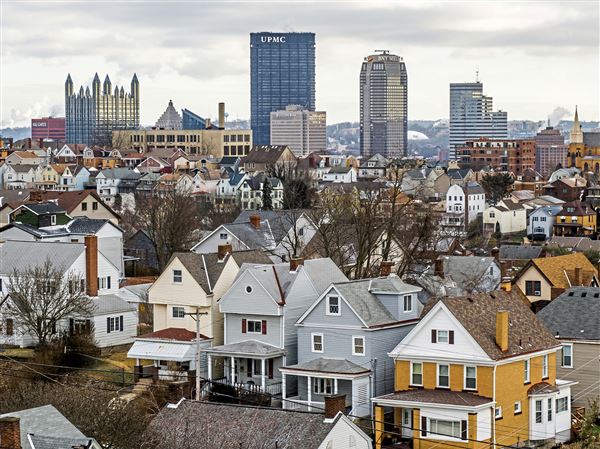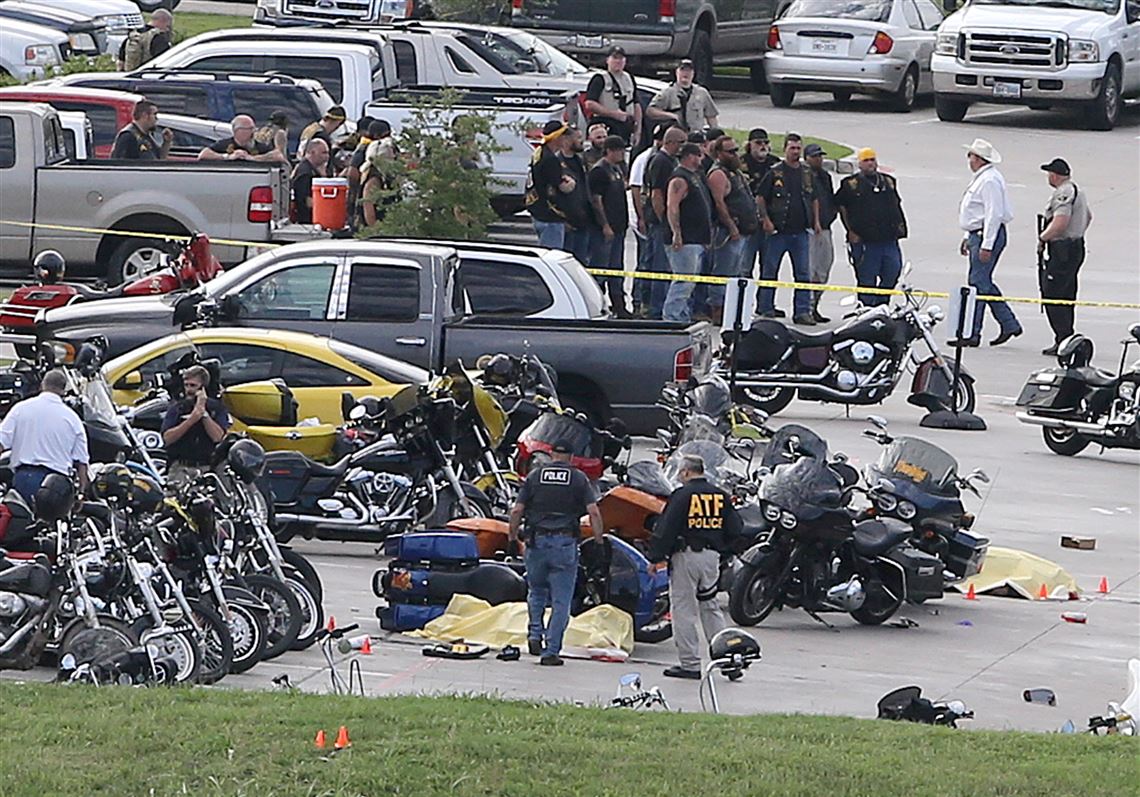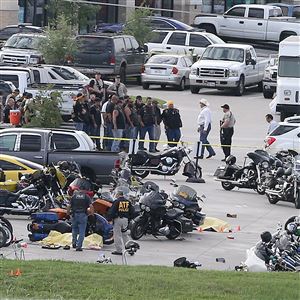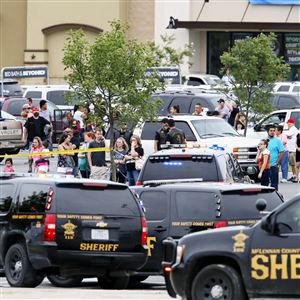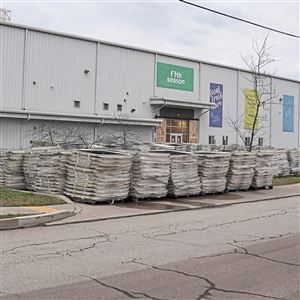Every once in a while, the violent world of the outlaw biker intrudes on the public consciousness, as it did in dramatic and tragic fashion Sunday in Texas, where nine bikers died in a shootout and about 170 were arrested.
The crowd of suspects, mostly charged with engaging in organized crime, was so large that authorities opened a convention center to hold all of them before they were arrested, police said.
The last time such a big biker melee captured the nation's attention was in 2002, when a swarm of Pagans attacked the Hell’s Angels at a Long Island catering hall, resulting in one Pagan killed, at least eight injured and the arrest of 73 Pagans, many from Pennsylvania.
One of the plotters of that attack, according to the FBI in New York, was Dennis “Rooster” Katona of Hempfield, who was then the Pagans’ national sergeant-at-arms. He pleaded guilty to a federal racketeering charge and is in state prison on unrelated drug distribution crimes.
As bad as that incident was, the donnybrook in Waco trumped it easily, leaving 18 wounded in addition to the nine killed, all members of the Texas-based Bandidos and a local gang, the Cossacks.
The motive for the chaos remains unclear, but there was no indication that bikers from Pennsylvania were involved. The Bandidos, one of a handful of dominant outlaw gangs in the U.S., are active mostly in Texas and the Southwest.
Still, law enforcement in Pennsylvania is keeping an eye on what happens here and in Waco.
“We certainly monitor these organizations across the state, and we are watching what is happening in Texas for any implications it may have for Pennsylvania,” said state Trooper Adam Reed, a public information officer in Harrisburg.
Outlaw biker gangs have long been involved in all manner of mayhem and criminal enterprise, and in the case of the Pagans in Pittsburgh, New York and Philadelphia, drug dealing with the Mafia.
According to the U.S. Department of Justice, more than 300 outlaw biker gangs are in the U.S., ranging from small local groups to big national and international outfits, such as the Bandidos; Pagans; Hell’s Angels, which has a chapter in Philadelphia; and Outlaws, which opened a chapter in Johnstown in 2011. Those gangs are typically considered the big four, although the Justice Department lists others, such as the Sons of Silence and the Mongols, which has a chapter in New Castle and in central Pennsylvania, according to the group’s website.
The Hell’s Angels, founded in California, is probably the largest, with some 2,500 members in 230 chapters in the U.S. and overseas. The Bandidos have about the same number of members, with 93 chapters in the U.S. and more in other countries.
The Outlaws, which are dominant in the Great Lakes region, have 1,700 members in 176 chapters in the U.S. and abroad.
The Pagans, which have been fragmented by prosecutions in recent years, still have some 250 members in 41 chapters and are active mainly in the mid-Atlantic, with their national headquarters at one time in a rundown Washington County farmhouse.
The Pagans, founded in Maryland in 1959, have been the dominant biker gang in the Pittsburgh region, one of its strongholds. But their numbers and influence have dwindled with major cases against them in the state and federal courts.
Two major federal prosecutions in the 1980s hurt them here, when the FBI used the Racketeer Influenced and Corrupt Organizations Act to cripple the organization.
The Pagans remained involved in drug dealing and extorting bars and clubs, according to law enforcement.
State police began building a new case against them in the mid-2000s, culminating in a 2009 state grand jury presentment in Allegheny County that described the structure of the Pagans, including its “mother club” and its four local chapters in Pittsburgh, Greensburg, McKeesport and Fayette City.
State agents focused on drug distribution by the Greensburg chapter, headed by Ray Overly of Belle Vernon. Five members were prosecuted, but Overly fled to Florida. He is now in state prison.
A parallel federal case in West Virginia further damaged the gang, this one involving another local gang leader, Richard “Big Rick” Speciale of Ross.
He was charged with distributing cocaine from June 2007, just months after his release from federal prison on a previous cocaine conviction, to January 2010, when he was arrested in Ross. He pleaded guilty in federal court in Clarksburg, W.Va., and is awaiting sentencing.
Despite prosecutions and jail terms, the Pagans still maintain a presence in this region and occasionally make very public appearances.
Last year, for example, about 100 showed up at a funeral home in Penn Hills in their trademark jackets —the ones that incongruously spell their name as “Pagan’s” — to pay their respects to Daniel “The Deacon” Zwibel, a former national vice president from Westmoreland County who had gone to federal prison in the 1980s for selling cocaine for the Pittsburgh La Cosa Nostra family.
Torsten Ove: tove@post-gazette.com or 412-263-1510.
First Published: May 19, 2015, 4:00 a.m.
